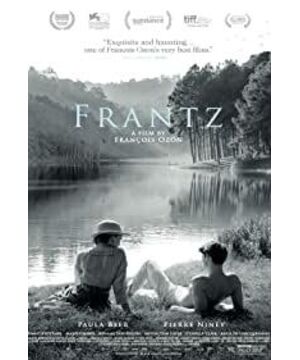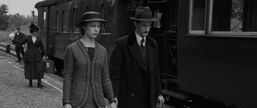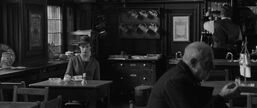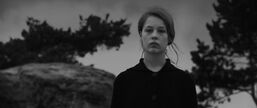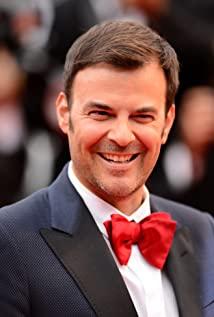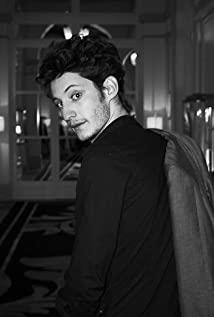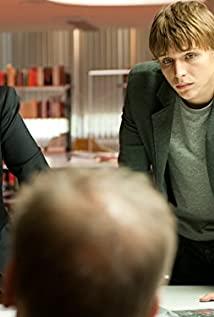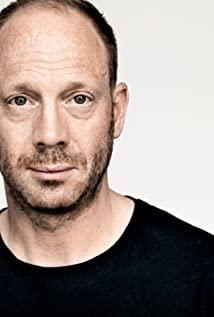After watching it, no, even at the beginning or middle of the film, many people may be surprised: is this really Ou Rong's film? As one of the representatives of the French new wave directors, Ou Rong is good at shooting all kinds of female stories, and is also good at telling taboo love about homosexuality or incest, preferring plots or suspense themes that are easy to grasp the rhythm. Franz, however, seems to be deliberately eschewing what he was good at in the past, turning the lens to a difficult subject that, once done, is meaningful: war and love.
The film is set in 1919, after World War I. Although the relationship between France and Germany has been calm, the hostility of the war and the painful memory of the war still remain. Therefore, we can see that Franz almost wants to pursue the ultimate retro in the lens - black and white lenses account for the majority, and the only color lens is very restrained and calm, and it feels a bit like an old movie restoration , and the location where it appears is worth recalling.
The director is also very restrained, and the language of the shots gives people a clean and condensed impression. He maintains this simple design in shaping the characters, and the emotions of the characters are just right, a kind of public, universal, and belongs to everyone. Empathy.
The sound of the wind passing through the leaves is why I love spring.
The heroine Anna is the absolute narrator of the film, and Franz tells of her tenderness and loyalty, joy and despair. This is not only because the film uses a two-line narrative, with Adrian's wartime experience and his experience of redemption in France, and Anna's emotional clues and going to Germany to find Adrian. Beautiful match. What's more, Anna holds the biggest secret in Franz - Adrian, a French young man who brought her parents joy and happiness by visiting her parents in the name of a friend of Anna's dead fiancé Franz. , was the murderer of Franz. The biggest dramatic conflict in the film is finally revealed in the dialogue between Adrian and Anna in the cemetery, showing the last patience of Adrian's soul, which is also the climax of the film. Especially in the process of Adrian making lies in exchange for forgiveness, he gradually understands what kind of German Franz, who he killed as a French soldier who was not ready to fight back, was doing his duty as a French soldier. Franz loves the violin, although only as an amateur; Franz often speaks French with his fiancée, Anna, which is their "langue secret"; Franz is a pacifist who was forced into battle by his patriotic father... …
French, German, how to distinguish?
When he met Adrian on the battlefield, Franz had no bullets in his gun at all.
A letter is the culprit in revealing the secret. This is what Adrian found in his pocket after he killed Franz, a letter from Franz to Anna.
Dear Anna: The noise is horrible. You can't imagine how terrifying this battle will be. But not everyone will die, with any luck, I will survive. In my breast pocket I store the dried roses you gave me.
The letter was read by Adrian, and with Anna's despair and tears, we finally understood everything. When Franz's voice in the memory overlapped with the content of the letter, the tears could no longer be held back. We cry for Franz's kindness, we cry for Anna's pain, we cry for Adrian's helplessness, we cry for war and love.
Franz then showed the artistic charm brought about by the contrast of opposites. Adrian came to Germany and saw the anger and fanaticism of the Germans. They sang the national anthem, defended their honor and mourned their lost sons. Thus, Adrian encounters great hostility, but Franz's parents and Anna are his only consolation, his unexpected friendship. They talked about Franz, and he told lies about Franz; they kept him for dinner, and he left without saying goodbye. Germany is a really dangerous place, but it also proves Adrian's determination to redeem himself: he must ask the Franz family's forgiveness. Otherwise, the memory of Franz will always be the young man who was killed by himself in the trenches, the young man who might visit the Louvre and play the violin with him in his fantasies.
After telling Anna, he ended the process of atonement because Anna said Franz's parents already knew the truth. Adrian returns to France.
At this point in the film, sadness continues to enlarge and thicken like the principle of accumulation. The narrative point of view here is entirely with Anna, who holds the secret and deceives Franz's parents and Adrian at the same time. She is Adrian's savior, and she is also the savior of Franz's parents. But she intended to kill herself.
Ana, it was you who let us out when Franz left. Now, it's our turn to do so. You must live.
Franz's parents gave Anna great tenderness and encouraged her to go to France to find Adrian. The film seems to have a trace of upward things here, pulling everyone. But the contrast is also here: Anna went to France and was discriminated against. The French sang the Marseillaise with fervent patriotic passion. Anna was not comforted. Adrian's family is happy, his fiancee loves him very much, and the cowardly Adrian finally sends Anna on the train and tells her: Goodbye, you have to be happy.
Anna came to the Louvre and saw again Adrian's lie claiming that Franz and Manet's work he often admired. This painting that appeared in Adrian's pain and guilt is now in front of Anna's eyes:
"suicide".
I also love this painting, it makes me want to live.
View more about Frantz reviews


